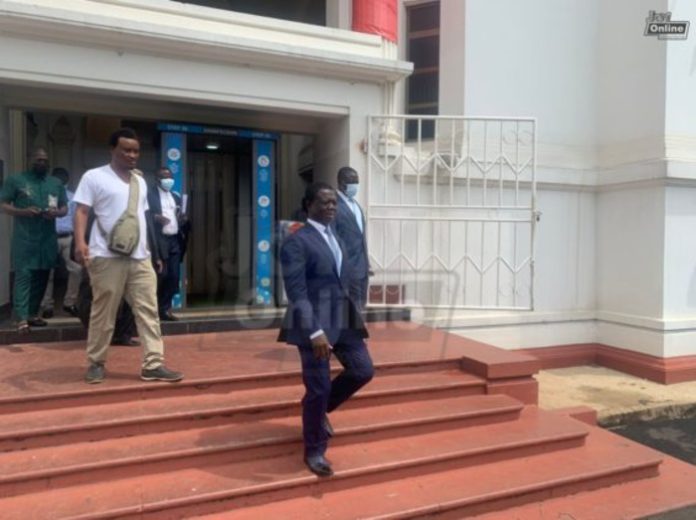An Accra High Court has sustained an objection to Paul Adjei Gyang’s investigator’s statement being applied as evidence in the prosecution of Dr Stephen Kwabena Opuni and two others.
The prosecution initially opposed tendering the document, arguing that the statement had previously been rejected by a High Court as hearsay evidence and hence could not be admitted into evidence.
Earlier in the trial, the High Court rejected the exhibit as hearsay evidence, but Mr Benson Nutsukpui, representing Agongo, disagreed.
Mr Nutsukpui, leading Mr Gyang, who is the subpoenaed witness for Mr Agongo in further evidence in chief, sought to present a statement written by the witness while the investigation was still ongoing, but the prosecution objected.
Dr Opuni and Mr Seidu Agongo, a Businessman are facing 27charges, including defrauding by false pretences, wilfully causing financial loss to the State, money laundering, and corruption by a public officer in contravention of the Public Procurement Act.
They have both pleaded not guilty to the charges and are on a GH¢300,000.00 self-recognizance bail each.
The Counsel said Mr Gyang wrote the statement and was the appropriate person through whom it could be presented, and that now that he was in court, this should be done.
However, the court said the document the counsel sought to tender was already marked on its records as rejected.
The court, presided over by Justice Aboagye Tandoh, stated that the witness who authored the statement sought to be tendered in his evidence in chief indicated that he had told the Court that all was in the statement.
It said that the same exhibits should not be marked as rejected on the records and then admitted, especially if the substance was on record and repeated in the witness for Agongo and Agricult Ghana Limited’s examination in Chief.
“In my view, the Court can evaluate the totality of the evidence at the end of the trial and the issue of whether or not the exhibit was rightly or wrongly admitted will come up for determination,” it added.
ALSO READ:

